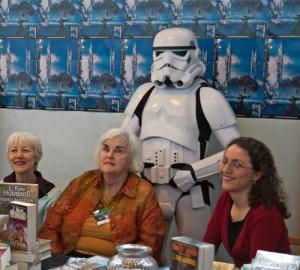This is all about getting Gmail to run on a low powered processor without the machine grinding to a halt.
I have a 1 1/2 generation netbook, the Acer Aspire One A110.
The netbook has low RAM, 512MB, and adding more is a massive task involving taking the whole thing apart. A new SSD, on the other hand is more manageable. The processor is an older Atom single core, 1.6GHz.
The original SSD is just 8GB, so I may try mounting a larger one. The machine came with a Linpus (as far as I recall (Linux)) system, and some standard apps.
I want to use this with a relatively modern Linux distribution, but the easy choice, Ubuntu or the like) simply cannot run properly on such a low powered machine.
What to do? I tried with Xubuntu, and while it is running, an update broke the screen driver, so it could only show 800×600, not the original 1024×600 screen resolution. Discarded. I became aware that the Raspberry Pi folks had made a version of their Raspbian system for Intel type processsors. This works with a relatively low demand on the 512MB, and the screen works properly in the 1024×600 resolution using about 100MB for the system with its running processes.
So far, so good.
I intend to use the machine for non-demanding stuff like writing for this blog, managing ebooks etc. Now, the system comes with a Chromium web browser, but in my experience this is a massive memory hog, so not really feasible with the low RAM.
The Thunderbird email client is also quite memory intensive, so I tried out a terminal email client, Alpine, which is fairly user friendly if you are not afraid of a text mode screen. This installed and following the manual for setting up Gmail, and at the authentication it failed. The thing kept asking for a login every time I tried to enter the password.
Google the problem. Yes, it was known. I should change the setting accept “less secure clients. This works. But (there is always a “but”) suddenly my phone kept asking to login to Google, and kept doing it. Also they keep sending mails about “upgrading security”.
Text mode browsers were tested, but not accepting Javascript the Gmail site refuses me a login.
I tried to find a text mode app that Gmail will accepts as “more secure”, but nothing found.
Update :
Here is what I do now with that machine :
Thunderbird and Chromium use about the same amount of memory, even if 2 tabs are open in Chromium. Wo when it is open there is gmail and this blog in 2 tabs. That works with a bit to spare for the writing programs.
Second update 13 August :
That netbook does not have the power for a writing program. Fortunately I have a newer, and with a larger screen, Acer with 4GB RAM and a quad core Atom processor. Runs the writing programs easily with a bit to spare. That will most likely end up as my computer for writing what I want.

